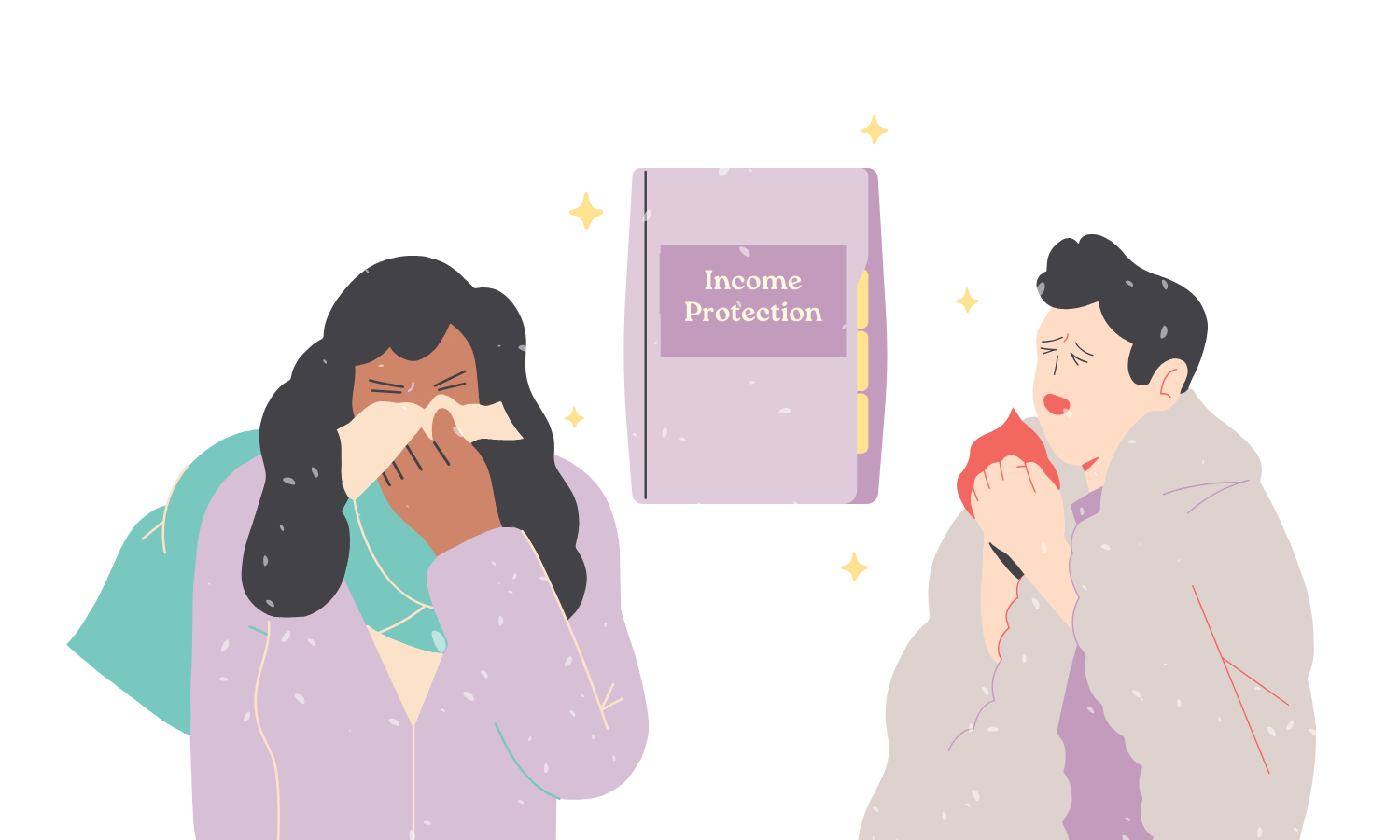Understanding income protection insurance for the self-employed
Running your own business comes with a lot of perks, from setting your own schedule to pursuing your passions. But amidst the hustle and bustle of entrepreneurship, it's crucial not to overlook the importance of financial protection. While being your own boss brings many joys, it also means you're solely responsible for your financial security in times of illness or injury. Today, we're diving into income protection insurance for the self-employed. Whether you're a freelancer, consultant, or small business owner, understanding the ins and outs of income protection can give peace of mind as you navigate the twists and turns of your entrepreneurial journey.
Can self-employed folks get income protection insurance?
Yes! Being self-employed doesn't mean you're left out in the cold when it comes to income protection insurance. Whether you're a business owner or a freelancer, you're eligible to apply. As long as you're putting in around 20 hours of paid work per week (though this can vary by policy), you're good to go. The coverage amount will depend on your chosen policy and your income level. Generally, income protection insurance offers regular payments based on a percentage of your earnings, up to a maximum threshold, if you're unable to work due to illness or injury.
Benefits of income protection insurance for the self-employed
Running your own show comes with its share of stress. But have you thought about what would happen if you couldn't work? How would it affect your business and your family's lifestyle? Unlike employees at traditional companies, self-employed individuals or small business owners often don't have access to safety nets like sick leave, personal leave, or workers’ compensation.
Income protection insurance steps in to offer you a reassuring layer of financial security. It ensures you can stay on top of your bills and expenses, even if you're unable to work.
Business Expense Insurance vs. Income Protection: What's the difference?
You might have come across business expense insurance while looking into financial protection for your self-employed gig. This type of cover is geared toward covering specific business expenses if you're unable to work due to illness or injury. But here's the thing: it might not offer the same comprehensive benefits as income protection.
Unlike business expense insurance, income protection ensures you receive a steady income stream that you can use for various expenses, including keeping your household running smoothly with mortgage and utility payments. So, while business expense insurance is tailored for specific business costs, income protection offers a broader safety net for your overall financial well-being.
How are income protection premiums calculated if you are self-employed?
Income protection premiums aren't set in stone. They're based on stuff like how old you are, what you do for work, and the specifics of your cover. And hey, those details matter. Your policy might cover some things but not others, and the definition of "disabled" can vary.
First off, you gotta decide how much cover you want. Usually, it's tied to your income and expenses. But for self-employed folks, pinning down an exact income can be tricky. Your business earnings minus costs give you a ballpark, but it can change year to year. Some insurers might ask for your tax returns from past years to size up your income.
Depending on how you pay for your coverage, you might be able to deduct those premiums come tax time. It’s always best to check with your accountant.
Choosing the right income protection policy for you
Alright, let's talk shop. When you're hunting for income protection insurance, it's not just about picking the first policy you see—it's about finding the one that fits like a glove. Here are some tips to help you sift through the options including the benefits and features that matter most:
Check the maximum benefit amount. This little number tells you how much dough you'll be getting each month if you need to make a claim. Make sure it's enough to keep the lights on and the coffee brewing.
Mind the waiting period. The waiting period tells you how long you'll be twiddling your thumbs before the cash starts flowing. Read more about income protection waiting periods here.
Scope out the benefit period. How long can you count on those sweet, sweet payments if you're out of commission? That's what the benefit period is all about. Pick a policy with a benefit period that gives you peace of mind.
Bonus features: Some policies come with extra bells and whistles, like recurrent claim benefits or partial disability cover. Take a peek at these goodies—they could come in handy when you least expect it.
Watch out for offsets: Keep an eye out for any sneaky offsets that might shrink your payout if you're getting other payments on the side.
Remember, always give that Product Disclosure Statement (PDS) a good once-over before you sign on the dotted line.
Your income protection insurance could be just one piece of the puzzle when it comes to safeguarding your financial future. Depending on your situation, you might also want to explore options like death cover or total permanent disability insurance.
If you are self-employed and looking for income protection insurance, have a chat with your financial adviser to find the level of cover that suits you.






